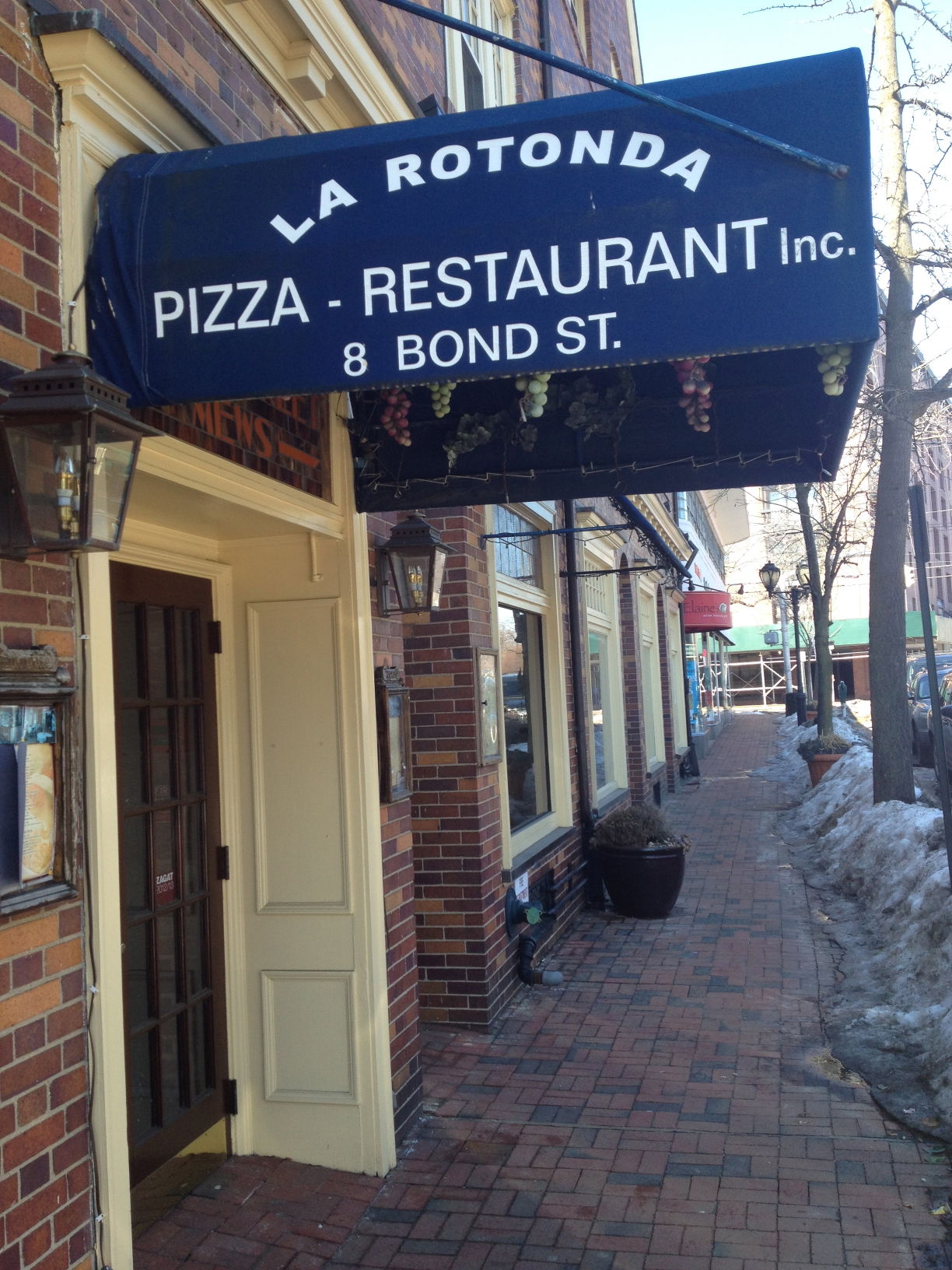La Rotonda, the Italian restaurant that closed in June after 14 years in business, will be reopening at its old location at 8 Bond St. within the next month and a half.
Village of Great Neck Trustees granted a conditional-use permit to La Rotonda’s owner George Pecroaro at its meeting Wednesday.
“We’re hoping to continue from where we left off,” Pecroaro said. “The wood burning ovens are staying there, but there will be no party room.”
Pecroaro’s attorney Jeffrey Schwartz said the restaurant will be restored to it original two dining rooms.
Luigi Muto, the former owner, expanded the restaurant in 2012 into two vacant storefronts, giving the restaurant three main dining rooms that could seat more than 100 diners at once.
Muto also built a fourth room, the “Rondo Venettiano” party room.
“The bulk of what was in La Rotonda remains the same in there,” Schwartz said. “[Pecroaro] was the chef so I think there is some continuity here which I think will bring a certain level of excitement to Bond Street and village in general.”
The restaurant was originally located on Middle Neck Road when it opened in 2002 and moved to its 8 Bond Street location two years later.
Pecroaro said he is planning to have café tables outside and a delivery service as well. He also said the restaurant will serve beer and wine but no hard alcohol.
“We’re glad to be bring new business back into the Plaza,” said Trustee Gerry Schneiderman, who Schwartz credited as having helped bringing the restaurant back.
In other news, village residents should expect a tax refund sometime in the fall because Great Neck Plaza did not exceed the state 2 percent state tax cap in its 2015-2016 budget.
Plaza trustees voted Wednesday to repeal the law they passed in December allowing them to override the state-mandated 2 percent tax cap.
Great Neck Plaza Clerk Patricia O’Byrne said the village voted for the law allowing them override the tax cap in December, mostly as a precautionary measure.
Village Mayor Jean Celender said if a village passes a local law to override the tax cap and the village budget doesn’t exceed that 2 percent cap, the state requires the village government to repeal the law.
This is the first time the village has been required to do this, O’Byrne said.
“If we repeal it, because we didn’t go over tax cap when we adopted the current budget, the property owners are supposed to be able to get some kind of refund,” O’Byrne said.
O’Byrne said most municipalities vote to override the cap to be safe in case they would have to go over the tax cap. She said the village has always typically voted to override the tax cap but this is the first year village residents can get a refund.
She said it is unclear how much residents will get back.
Trustees approved a $6,469,260 budget for the 2015-2016 fiscal year in January that increased village spending by more than 20 percent or $1,111,886, but which trustees said would be within the 2 percent tax cap.
Celender said the tax rate for the village will increase from 4.44 per $100 valued assessment to 4.77.



